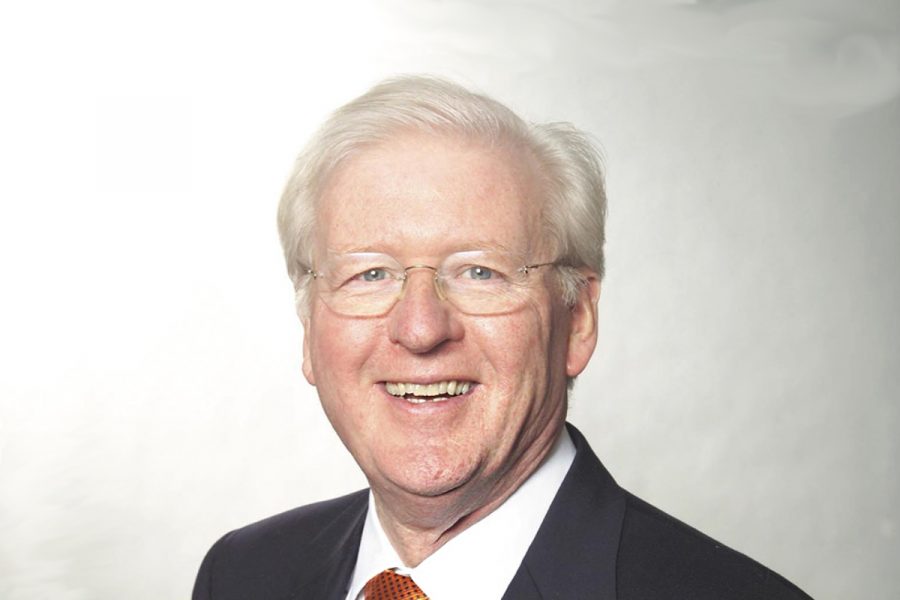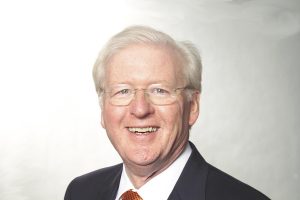Warwick Bartlett: “So far, the record on blocking has not been good”

Warwick Bartlett, Chief Executive at GBGC, spoke with Focus Gaming News and analysed the performance of the industry during 2021. He also shared his views on gambling regulation.
Exclusive interview.- The end of 2021 is approaching, a year that was marked by the return to face-to-face events, but also by the constant ups and downs due to the Covid-19 pandemic.
Warwick Bartlett, Chief Executive at GBGC talked with Focus Gaming News and gave his particular look at the year that is coming to an end and analysed the changes in the industry from the opening of new regulated markets.
In addition, he spoke of the changes that will be announced in Macau and the issues that will be key for 2022.
On balance, would you say 2021 was a good year for gaming?
When we look over the last years performance, we very often compare it with the previous year. 2020 was one few will forget.
Continual lockdowns, people frightened to leave the house, then the miracle of the vaccines. All of which was disruptive for the gambling business. Internet faired well, bricks and mortar had a tough time of it.
So, when we look at 2020 by comparison, yes it was a good year. Internet continued to perform well, and recovery started in bricks and mortar. But compared to pre-Covid-19 years, not so good.
What were the main topics you’ll remember the year for?
Seeing businesses like Las Vegas Strip casinos start the road to recovery, seeing the industry starting to meet again in conferences and exhibitions.
Countries beginning to see the sense in regulating and licensing the industry, and those that already have coming forward with draconian regulation, such as Germany, not that they are on their own.
In Europe, we saw new regulated markets open, while other jurisdictions are revising regulations. Do you think we’ll see more or less harmonisation, and what does that mean for operators?
It seems politicians do not like their citizens gambling, and many of the regulations introduced are designed to make life difficult for the operator and the consumer.
My fear is that illegal gambling will begin to grow, and gamblers will find their way to non-licensed sites using cryptocurrencies. Can you imagine that people like Elon Musk, Bill Gates, and Mark Zuckerberg having to produce wage slips and banks statements to open a gambling account online? It really is crazy.
The regulation does not allow discretion, it is so inflexible.
Could other jurisdictions follow the Netherlands in adopting a tougher stance on unregulated operators that don’t actively block local players?
The Netherlands was not the first others have already gone that route, whether they will be more successful than those that have gone before remains to be seen.
So far, the record on blocking has not been good. To make it work the authorities will have to spend an extraordinary amount of time with a very small return on their endeavours.
We have heard about the great firewall of China which compared to western jurisdictions is severe, does it prevent gambling? No.
“People like to gamble, they will always find a way around the regulations. Hence the take off in cryptocurrency gambling.”
Warwick Bartlett, Chief Executive at GBGC.
What are the issues you’ll be keeping watch on in 2022?
I am not an expert, but I think we may start to see the beginning of the end of Covid-19. This will enable companies to plan much better, get people back to the office, and go to exhibitions.
I would have preferred ICE to have been later in the year, say April or May, so it would miss the peak of winter Covid-19, nevertheless, I expect it will be a great success in February. People just want to get out and meet people again.
Key to European i-gaming is the UK’s Government white papers on the Gambling Act and Advertising.
With the UK market the largest in Europe, and with most i-gaming companies having a footprint in the UK, if the UK Government proposes to introduce deposit limits, limits on play, this could de-stabilise the European industry, which the UK represents about 40 per cent.
Having said that a lot of companies have already started to impose restrictions on VIP’s, so perhaps Government might feel the current arrangements are satisfactory.
Politically the government and politicians have highlighted a problem that no longer exists, but there is an expectation that they must do something, however, the Minister has stated that the results should be fact-based. One lives in hope.
“So far, the industry has never challenged the government regardless of how regulatory measures have affected their business.”
Warwick Bartlett, Chief Executive at GBGC.
Really tough regulation will certainly test the resolve of the industry, we may see a challenge through the courts. If the proposals devastate the business the industry may feel they have nothing to lose but to go for a judicial review.
Any bets on how Macau’s review of gaming legislation and casino retender will play out next year?
It’s anyone’s guess. The operators seem quite relaxed about it, and they are closer to it than anyone else.
In today’s world, geopolitics can trump commerce. In the West, we judge things according to our culture, and we used to focus on jobs, business, and taxes.
Nowadays in the West, social responsibility and protecting vulnerable gamblers has taken precedent.
Beijing regards gambling as not leading to a harmonious society. Macau visitation on short visas suits that policy. Go there, gamble, eat and drink, have fun, go home.
They do want to clean up Macau, and this is a process that began when SJM lost the monopoly licence. It seems the junket business that brought many VIPs to Macau is all but over, and this will affect profitability and valuations.
So, the offer to customers has broadened with non-gambling facilities, a host of Michelin starred restaurants, and theme parks, and will continue to do so.
I think if the decision was Macau’s alone the licenses would be granted to the current operators because they have done so well in creating a booming jurisdiction, and who better to continue to make Macau more of a leisure destination. Why change what works?
Change in this respect brings uncertainty, that could lead to failure.
What I do think is that if the current operators want to roll over what they have already they will be expected to pay more.
With the loss of the VIPs that will not be an easy task.











